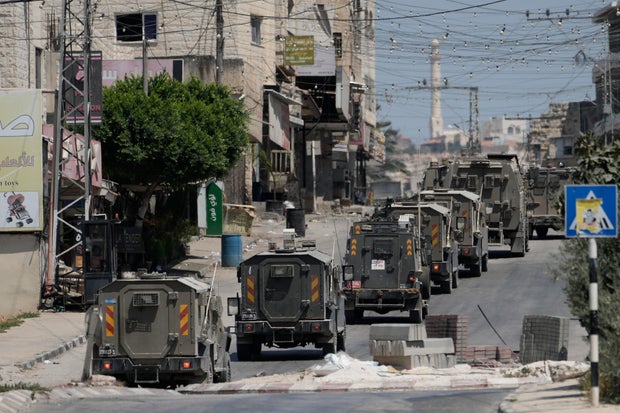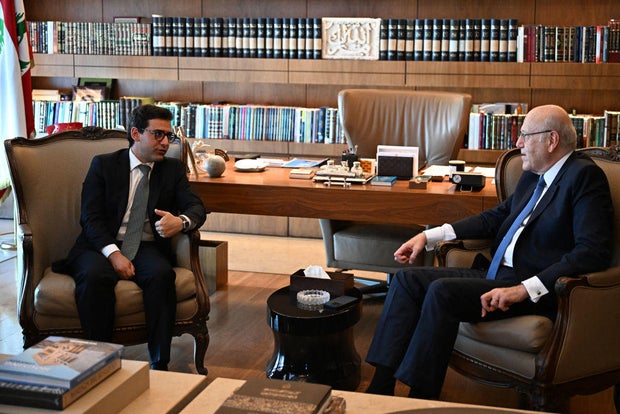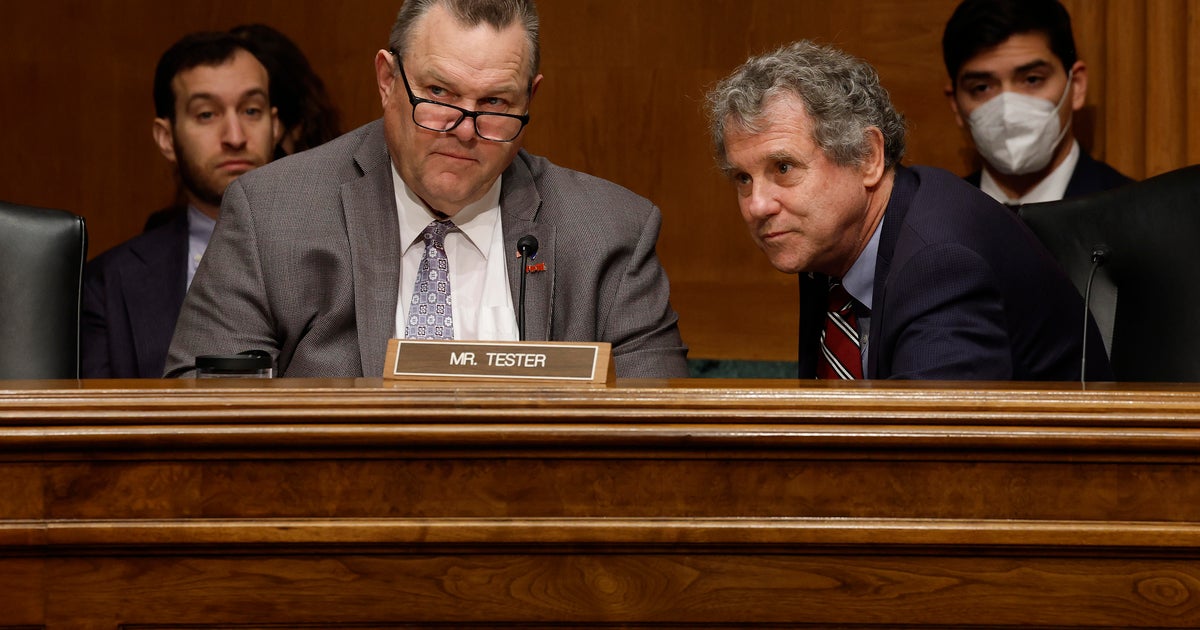Diplomacy takes center stage as Iran holds off retaliation against Israel
Along with a surge of combat aircraft and warships, President Biden dispatched three of his top Mideast advisers, including CIA Director Bill Burns, to the region this week to try to delay Iranian and Hezbollah military retaliation against Israel, and to use that borrowed time to craft an offramp from the collision course that ultimately risks a regional war that could draw in U.S. forces.
U.S. assessments are that Iran will not seek to disrupt ongoing cease-fire negotiations in Doha aimed at ending the Hamas-Israel war. Those technical talks could stretch into the weekend, but it is unclear how long Iran and its proxies may hold off. National Security Council spokesperson John Kirby told reporters on Thursday that an Iranian attack could come with "little or no warning, and certainly could come in the coming days."
Both Iran and its Lebanon-based proxy force Hezbollah have vowed to retaliate in response to the assassination of Hamas leader Ismail Haniyeh in Tehran two weeks ago and the July killing of top Hezbollah commander Fuad Shukr in Beirut, but have not specified when or how. Israel said it killed Shukr in an airstrike. A U.S. official confirmed to CBS News that Israel was responsible for Haniyeh's killing, though Israel has not publicly acknowledged it.
But multiple sources in the region told CBS News that Iran's government continues to internally debate whether to use military force as it did on April 13, when it launched hundreds of drones and missiles towards Israel, or whether to conduct a covert intelligence operation. Sources also indicated to CBS that Hezbollah's Lebanon-based leader, Hassan Nasrallah, does not want to act without Iran's consent, but also does not seek a wider-scale conflict with Israel. The U.S. assesses that Hezbollah could launch an attack with little to no warning.
The U.S. diplomacy, which includes indirect outreach to Tehran via other governments and to Hezbollah via politicians in Beirut, has been aimed at limiting the regional escalation risk. Iran's Permanent Mission to the United Nations told CBS News earlier this month that Hezbollah might not limit itself to military targets within Israel this time, suggesting the group could aim "broader and deeper" within Israeli territory at civilian targets. As of 2021, the CIA believed Hezbollah had an arsenal of up to 150,000 missiles and rockets, including some with long ranges that collectively have the potential to overwhelm Israel's anti-missile defense system and could hit deep inside Israeli territory.
At a press conference in Beirut Wednesday, U.S. special envoy Amos Hochstein indicated that the centerpiece of the Biden strategy is to use this narrow window of time to get Israel and Hamas to agree to a hostage release and cease-fire deal in the Gaza Strip, which could then help avert a war in Lebanon after 10 months of cross-border attacks between Israel and Hezbollah.
In a furious effort to turn the Biden administration's Gaza cease-fire framework into an actionable agreement, NSC Director Brett McGurk was in Cairo early this week and traveled on to Doha, Qatar, to help hammer out implementation details. With the U.S. acting as mediator, Burns led talks in Doha with Israel's Mossad director David Barnea, Qatar's Prime Minister Sheikh Mohammed bin Abdulrahman Al Thani, and Egypt's intelligence director Abbas Kamel.
The U.S. is expected to present a final bridging proposal, which was described by U.S. Ambassador to the United Nations Linda Thomas-Greenfield as ultimately allowing for the release of all hostages, a vaccination campaign to stop the spread of polio, restoration of services including water and electricity to displaced Palestinian civilians in the Gaza Strip, and includes efforts to help halt fighting in Lebanon. Current numbers from the Hamas-run Gaza Health Ministry indicate a grim milestone today of 40,000 Palestinians killed in the bloody 10-month war.
If all of this fails, the U.S. also has a parallel plan similar to when Iran launched its April 13 attack on Israel, to defend Israel with the aid of allies.
During that spring attack, U.K. military jets were scrambled to help protect U.S. and allied forces in Iraq and Syria, who are stationed in the region as part of the anti-ISIS coalition presence. If a similar attack is launched by Iran this time around, the new U.K. government is expected to replicate its role. A U.K. official told CBS News, "Our core focus is diplomatic efforts and de-escalation. But as you'd expect, we also stand ready to defend Israel, and we remain in constant touch with the U.S. and allies on potential scenarios, including active support to backfill U.S. functions as we did in April."
A French official also told CBS News, "We've been calling on all actors in the region to de-escalate. Alongside the US, we maintain strong diplomatic and military coordination in the region and are helping support in assessing and monitoring the situation."
Parallel to the talks in Doha, French Foreign Minister Stephane Sejourne was in Lebanon Thursday meeting government leaders, including those close to Hezbollah "to support the ongoing diplomatic efforts in favor of de-escalation in the region," he stated on X.
The timing of the Doha meeting, just four days before the start of the Democratic National Convention, also underscores the priority that the Biden-Harris administration is placing on ending the bloodshed and retrieving the hostages held by Hamas in Gaza, including five Americans still unaccounted for. The conflict has had a domestic political impact, and polling shows the humanitarian toll has particularly resonated among progressive, Black, Arab and Muslim American voters. The family of U.S. hostage Omer Neutra spoke at the Republican National Convention on July 17 to plead for more public pressure.






